
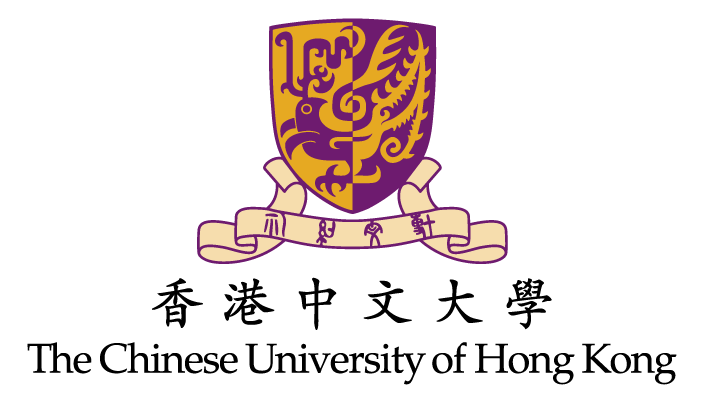
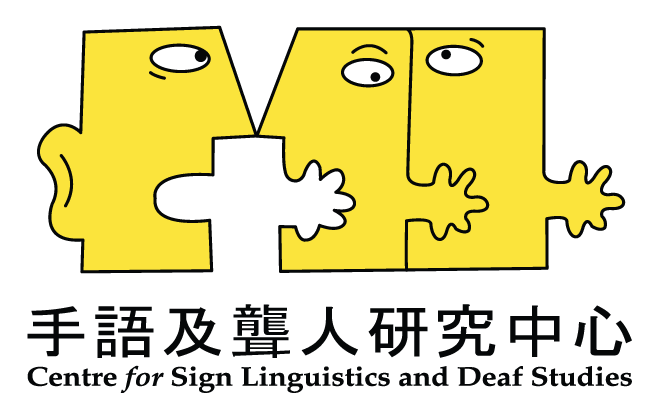
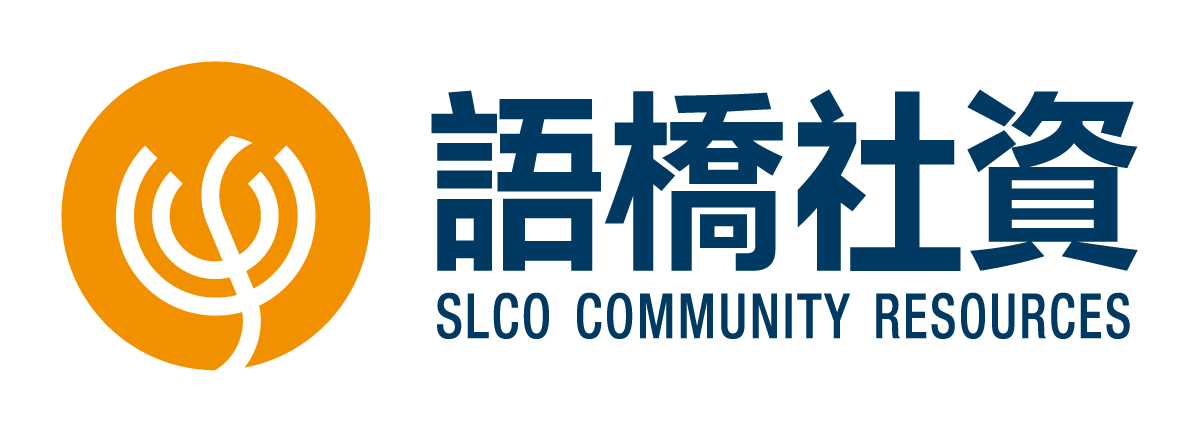
Due to misconceptions towards sign language in the past, the Milan International Congress for the Education of the Deaf (ICED) in 1880 suggested the ban of sign language in education. Since then, oralism (i.e. speech and hearing) has taken predominance in deaf education throughout the world, including Hong Kong. Although special schools have started to develop sign language for education in recent years, oralism is still the only choice for deaf children in Hong Kong, which often fails to accommodate the needs of deaf children with different hearing abilities.
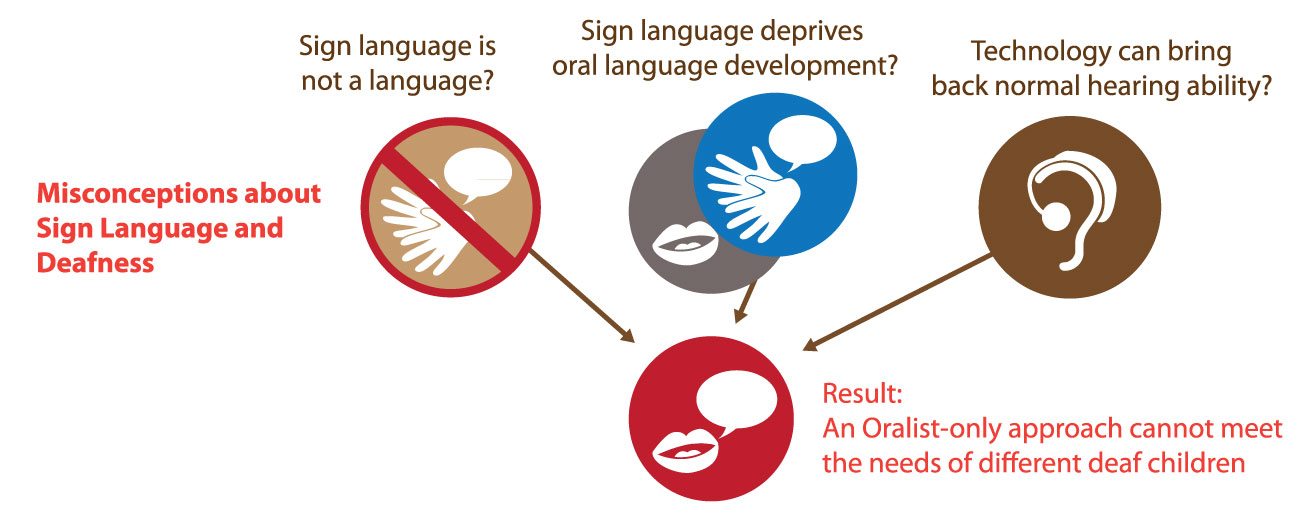
Hearing Technologies can never bring back normal hearing. 。

Due to their hearing loss, deaf children cannot form a complete language system by listening to a spoken language. Their language development was greatly hindered, which further adversely affect their social, cognitive and academic development.
According to a territory-wide assessment conducted by the Centre for Sign Linguistics and Deaf Studies of CUHK from 2007-2010, more than 42.9% of deaf integrators in mainstream primary schools are suffering from severe language delay, which means a 6-year old deaf child may only have the language ability equivalent to a 2-year-old hearing child.
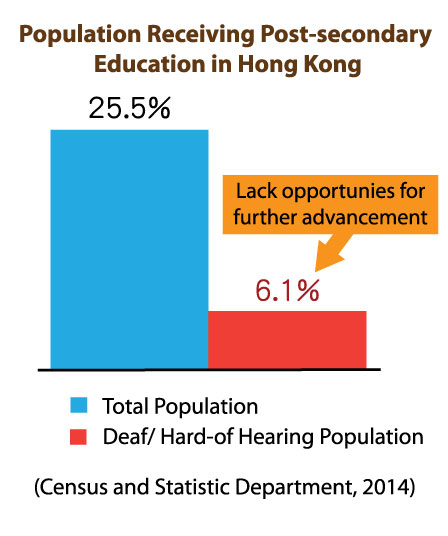
Despite deaf people have normal intelligence, communication barriers in class resulted from oralism education avoid them to learn effectively, which often leads to low academic achievement. According to the information of Census and Statistics Department (2014), in Hong Kong:
